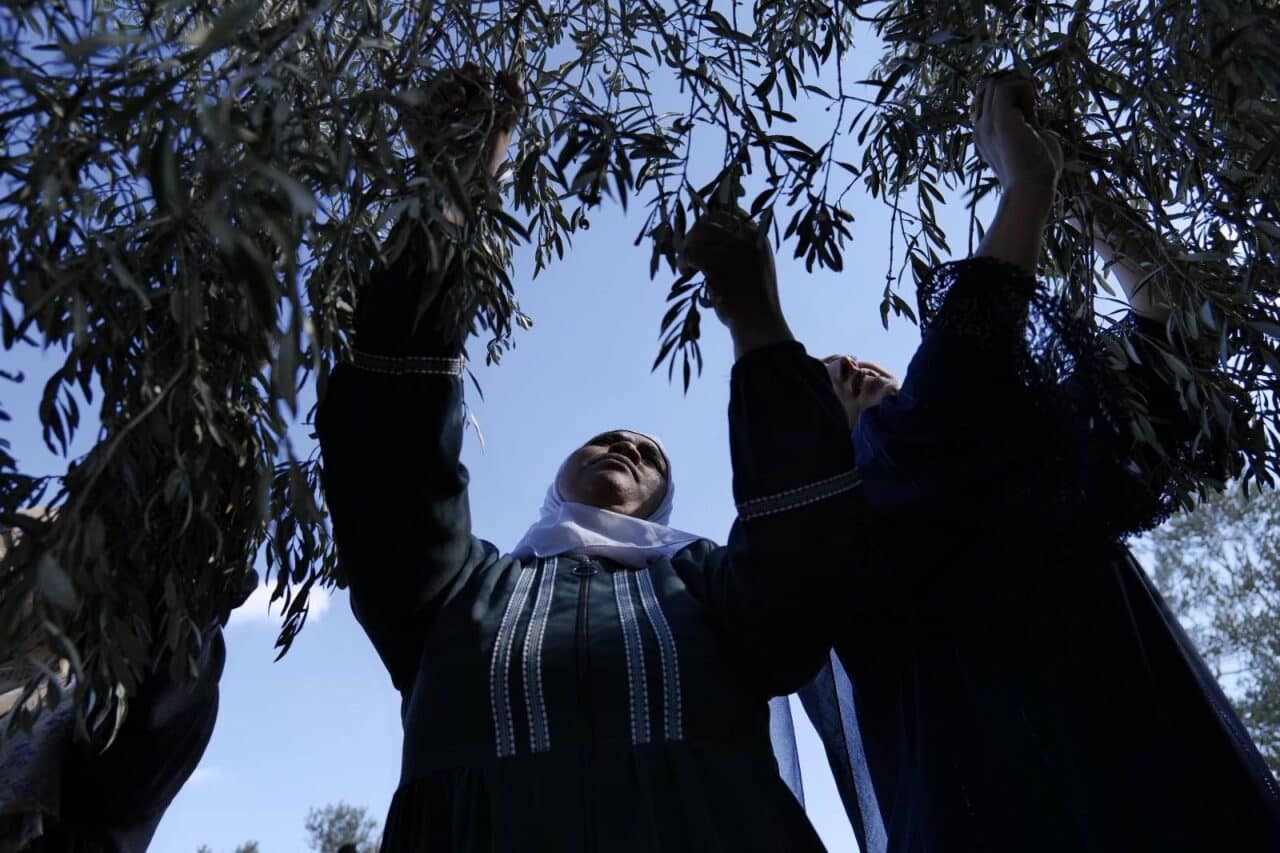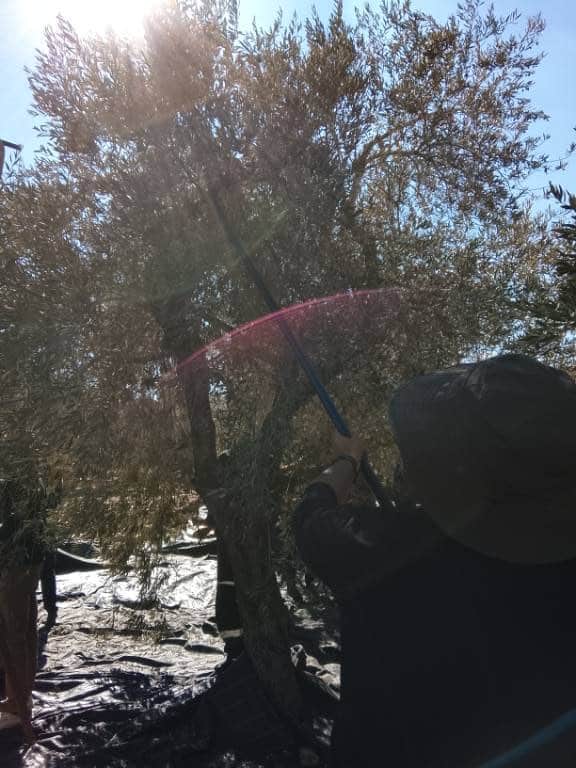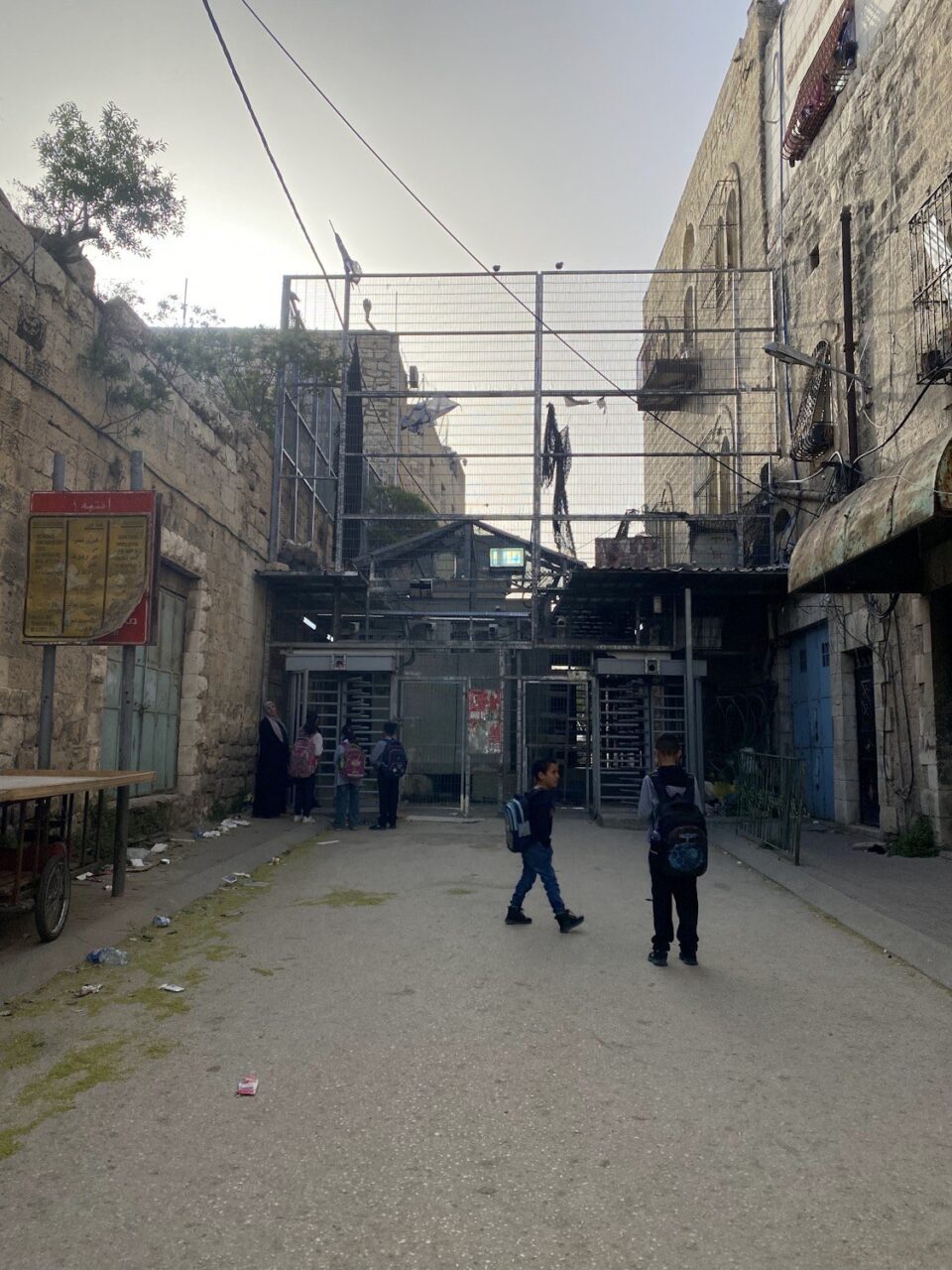-
Vicious attacks on Palestinian farmers during olive picking in the West Bank
By Diana Khwaelid The suffering of Palestinians, especially farmers trying to reach their threatened lands, those located near illegal outposts and close to the wall, has not stopped. Armed settlers are killing and assaulting Palestinians, and are seizing Palestinian land under the protection of the Israeli army. Tulkarm / Ramin Town On October 17th, the […]
-
Farmers Finally Able to Harvest Olives in Burin, Irak Burin and Madama After Days of Harassment
After two days of running from Israeli military, tear-gas, and armed settlers, Palestinians and their supporters successfully picked olives in three locations today: Burin, Irak Burin, and Madama. In Burin, a settler came and said that he was going to send in the military, so our Palestinian friends asked if we could help them pick […]
-
Al-Khalil: Daily Indignities, Daily Injustices
October 16, 2025 Sadly, it is just another day. Just another day of monitoring Checkpoint 56 to see whether Palestinian children and teachers are allowed by Israeli soldiers to get to school in the morning and home in the afternoon. Just another day of watching boys and girls in their own hometown, laughing and carrying […]
Action Alert An Nabi Saleh Apartheid Wall Arrests BDS Bethlehem Bil'in Cast Lead Demonstration Denial of Entry Ethnic Cleansing Farmers Gaza Global Actions Hebron House Demolition International law Israeli Army Jerusalem Live Ammunition Nablus Ni'lin Prisoner Ramallah Rubber-coated steel bullets Settlement Settlers Settler violence Tear-Gas Canister Video



